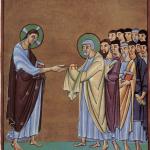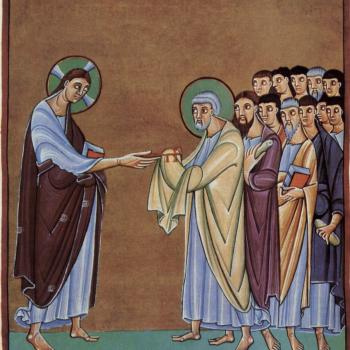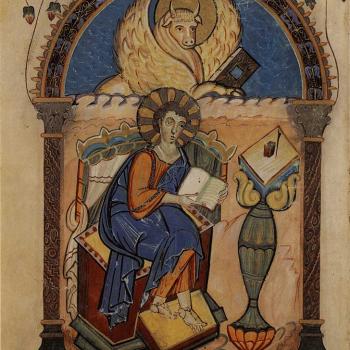
In the previous article, I discussed Luke 10:16, the question of authority, and how this text has been viewed throughout the ages. In that article, I cited Canon 21 of the Fourth Council of Constantinople to demonstrate that point. That is because the index in Denzinger’s Enchiridion lists it as a source.[1] It is very clear in this version of the text that Lk 10:16 is directly being cited (along with Mt 10:40). Here it is:
Canon 21, Constantinople IV
“The word of God that Christ spoke to his holy apostles and disciples: ‘Who receives you, receives me’ [Mt 10:40]: ‘and whoever rejects you, rejects me’ [Lk 10:16], we believe was addressed also to all those who, after them in accordance with them, became supreme pontiffs and leaders of the pastors in the Catholic Church. We, therefore, determine that absolutely none of the ruling powers of this world shall dishonor or attempt to remove from his throne any of those who occupy patriarchal sees, but they must judge them worthy of all reverence and honor; especially the most holy pope of elder Rome; and also, in order of succession, the patriarch of Constantinople, then indeed those of Alexandria, Antioch, and Jerusalem…. ” (Denzinger 661, my emphasis).
It can be seen here that the Council Fathers took brief citations of each Gospel to demonstrate their point. Unfortunately, this was not as apparent in the version of the text that I originally used in the previous article article when first published, which was from Norman P. Tanner’s (now out of print ) Decrees of the Ecumenical Councils, as found on papalencyclicals.net. That version reads:
“We believe that the saying of the Lord that Christ addressed to his holy apostles and disciples, Whoever receives you receives me, and whoever despises you despises me, was also addressed to all who were likewise made supreme pontiffs and chief pastors in succession to them in the catholic church. Therefore we declare that no secular powers should treat with disrespect any of those who hold the office of patriarch or seek to move them from their high positions, but rather they should esteem them as worthy of all honour and reverence. This applies in the first place to the most holy pope of old Rome, secondly to the patriarch of Constantinople, and then to the patriarchs of Alexandria, Antioch and Jerusalem.”
In hindsight, I wish I wouldn’t have been so lazy as to cut and paste the Tanner translation from the web. Nevertheless,, Denzinger’s translation makes the point more clearly, so I will go and patch up the original article.
It might be worth noting that Canon 21 of this ninth-century Council, now numbered as the Eighth Ecumenical Council by the Catholic Church, preserves the mind of its authors with respect to the taxis of the five patriarchal sees. Although Pope St. Leo the Great criticized the ascension of Constantinople to second in his day, the practice of the East is still reflected above, and would become accepted in the West.
[1] Index of Scripture References, p. 1346. Cf. pp. 227-8. San Francisco: 2012, Ignatius Press.
















